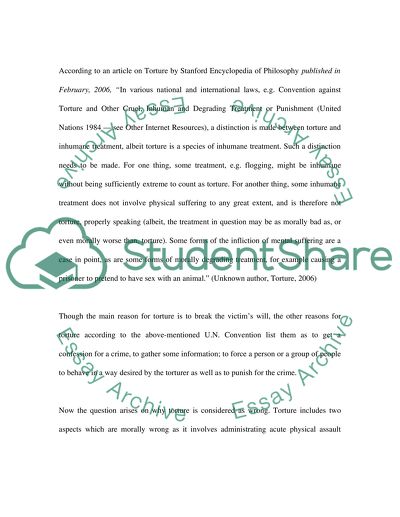Cite this document
(“Torture Essay Example | Topics and Well Written Essays - 1500 words”, n.d.)
Torture Essay Example | Topics and Well Written Essays - 1500 words. Retrieved from https://studentshare.org/politics/1519019-torture-essay
Torture Essay Example | Topics and Well Written Essays - 1500 words. Retrieved from https://studentshare.org/politics/1519019-torture-essay
(Torture Essay Example | Topics and Well Written Essays - 1500 Words)
Torture Essay Example | Topics and Well Written Essays - 1500 Words. https://studentshare.org/politics/1519019-torture-essay.
Torture Essay Example | Topics and Well Written Essays - 1500 Words. https://studentshare.org/politics/1519019-torture-essay.
“Torture Essay Example | Topics and Well Written Essays - 1500 Words”, n.d. https://studentshare.org/politics/1519019-torture-essay.


